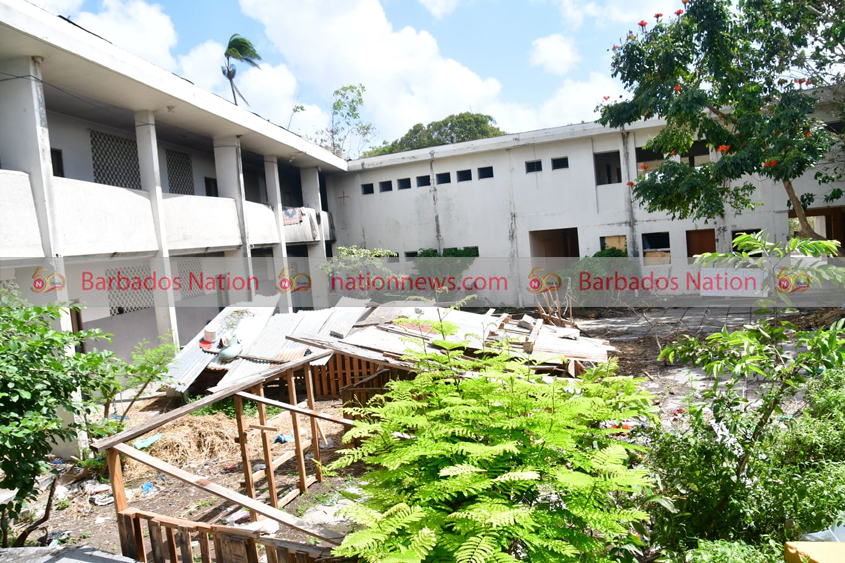

Barbados’ pork industry will “shrivel up” in the next five years unless action is taken now, says managing director of AOne Supermarkets Andrew Bynoe.
At a meeting with stakeholders on Saturday in the JB Simpson Complex at Six Roads, St Philip, Bynoe, who has been instrumental in promoting the product for a number of years, said if the sector is to remain viable, farmers must be able to produce 6 000 pigs for slaughter every month.
“The pork industry will be at this stage years from now if there is no effort to move it to its full potential. Without having the figures, my gut feeling is that the industry is in the same place it was 15 years ago. For the past five years, on average 32 000 pigs were slaughtered a year, an approximate consumption of 320 000 pounds per month at 120 pounds of pork per pig.
“Because of hard times, more and more people are keeping pigs. Even though one big farmer has dropped out, the increase in the number of small farmers has filled the void. The picture is, however, that the industry is in a position where it is producing approximately 300 pigs less per month, using 2020 as the base year,” he explained.
The veteran businessman said the fall-off was partially due to the high costs of feed and water.
“Five years ago, AOne supermarket paid the farmer $13.65 per kilogramme (kg). In 2022, we paid $14.85 per kg. Today, we are paying $16.63 per kg. These increases were due primarily to the increased cost of feed. The consumers are buying less pork because of the increase in the retail price. The supermarkets are buying less pork because of the lower demand. This goes right back to the farmer who is producing less because demand is less. If this continues for the next five years, the industry will shrivel up. This will create a reason to import,” he said.
However, the man known for the “proper pork” slogan is seeing light at the end of the tunnel, but adds it will take complete buy-in from all stakeholders.
“To my mind, the way out is as follows: With or without reduced feed and water prices, we should have a marketing programme to get young people eating more pork. We should encourage Chefette to put pork bites on their menu and convince the hotels of the truth
that our pork surpasses the quality of imported pork, thereby capturing that market,” he said.
Other initiatives Bynoe put forward included: emphasising exporting frozen and processed pork products; breaking down carcasses and boxing the various cuts; and offering smoked meats as well as bacon, sausages and other pork goods.
Plan
“If the industry is to grow, a plan must be agreed upon and worked upon,” he stressed.
Chief executive officer of the Barbados Agricultural Development and Marketing Corporation Frederick Inniss agreed, saying it was important to have the correct information in order to move forward.
“It is a question of planning, but you cannot plan in the absence of information. And from my perspective, yes, there may be areas where there is uncertainty, but there are some areas where we can have certainty. What is the production? Who are the farmers?
“On the poultry side, we have gone to a stage where we have been very intentional in terms of trying to capture information and to get to a stage where we can start not just to react, as unfortunately we had to do in the recent past, but we can actually start to plan,” he said.
“I would love to be able to do something similar within the pork industry because the only way you can get to a stage of being sustainable is if you know who your markets are, what you are planning to do in terms of the quantum of things you are producing on a monthly or annual basis. Until you can get to that stage, until you know what you are trying to achieve, you cannot be meaningful in terms of ‘Am I going to invest X additional dollars or am I going to lose money as a consequence’.” (CA)





